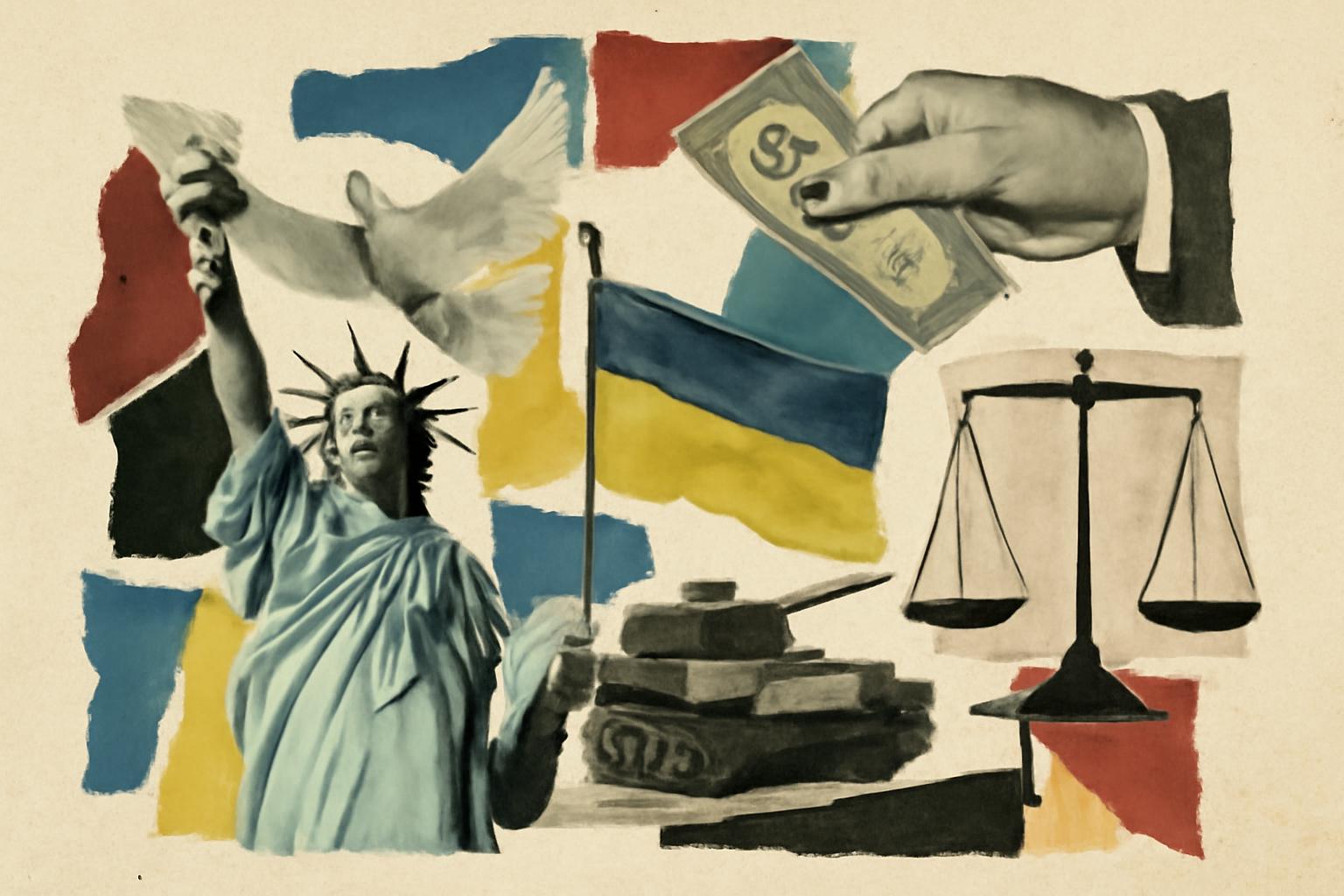Russia continues its onslaught, pounding Ukrainian cities with drones and missiles, killing civilians, including children, and tearing apart homes and a shopping center as the energy of a nation is gnawed to its knees. Kyiv and other towns see multiple strikes across five districts, a five-story building collapses, and a vast number of structures damaged while authorities warn that people may be trapped under rubble. The assault isn’t random; it’s a deliberate bid to wear down the population and seize leverage through fear, not through consent or legitimate political argument. At the same time, Ukraine’s energy grid is hammered, outages ripple through households, and the aim is to sap resilience before the heating season. The narrative of “defense” is always entangled with the power to tax, regulate, and deploy force abroad; but the core is simple: one gang aggressing against another, with civilians paying the price for whoever wears the mantle of state.
From a Hayekian lens, the catastrophe reveals the knowledge problem and the dangers of centralized command in times of crisis. War is not a neat, planned campaign; it unfolds through countless local decisions, market signals, and improvised responses that no planner can aggregate or direct with competence. Centralized attempts to “shore up” the grid or to sustain the war economy rely on coercive power—taxation, compulsory spending, and top-down directives—that distort prices, misallocate resources, and erode the very resilience that private property and spontaneous order might otherwise cultivate. When a regime uses force to break marrow of a society, the instinct should be to favor decentralized, voluntary, and accountable arrangements—private markets and charities stepping in where the state presumes to know best. The best defense of lives and livelihoods is not a bigger, louder state, but a system where ownership, contract, and voluntary cooperation organize risk and recovery, while recognizing that no government can master the unpredictable currents of modern warfare.
Nozick would insist that the moral baseline here is clear: aggression against persons and property is illegitimate. Russia’s actions are the paradigmatic breach of rights—a coercive claim on others’ lives, liberty, and property. Ukraine’s right to defense is not a question of political convenience but a matter of self-ownership and nonaggression. Yet the remedy is not more coercive state power at home or abroad. A minimal state might defend borders and rights, but anything beyond that—conscription, endless foreign entanglements, or expansive welfare-warfare programs—violates individuals’ sovereignty and funds aggression with stolen income. Voluntary, privately financed security arrangements and humanitarian relief—donations, private security firms, insurance-backed disaster response, independent NGOs—offer far more legitimate forms of aid than a grand, coercive scheme that remakes society in the name of “defense.” The emphasis should be on protecting rights, not expanding the apparatus that presumes to police the globe.
Rand would frame the struggle in stark moral terms: the assault on Ukraine is a direct assault on individual rights and rational self-interest. Collectivist aggression—whether dressed as nationalism, empire, or a “greater good”—is a denial of the rational, autonomous individual. The heroes here are those who defend life, liberty, and property through voluntary means, not through sacrificial demographics or state-directed mobilization for endless war. The correct response is to uphold the right of individuals to live free from coercive domination, and to support voluntary aid and private enterprise that can meet humanitarian needs more efficiently and ethically than bureaucratic programs. This is not a case for moral equivalence—Russia’s brutality is morally indefensible; Ukraine’s right to defend itself is non-negotiable. The broader implication is hostile to empire, interventionism, and moral justification for the state to seize resources in the name of “security.” Liberty demands that aid, defense, and reconstruction come from individuals acting in concert, not from a leviathan wielding power over all.
What does that mean in practical terms amid the current horror? It means recognizing the legitimacy of Ukraine’s right to resist invasion and to seek voluntary international support—yet insisting that such support be oriented toward protecting life and rights without expanding coercive sway. It means privileging free-market resilience—private ownership of critical infrastructure, competitive energy markets, decentralized supply chains, and voluntary, transparent aid networks—over state-managed “stability” programs that normalize coercion in the name of security. It means demanding that allied governments respect rights-based nonintervention in the sense of resisting empire-building measures and preserving space for voluntary cooperation instead of expansive, budget-busting guarantees that proliferate state power and distort markets. And it means embracing private humanitarian relief, charitable networks, and civil-society initiatives as the most legitimate and effective instruments for saving lives, while refusing to accept the premise that state coercion is the price of peace.
If we are serious about freedom, the answer to aggression is not more state. It is more liberty: stronger property rights, more voluntary exchange, and a defense of individual judgment against collective coercion. The road to security lies not in bigger arsenals and broader mandates, but in a world where people freely choose their defenders, where energy and resources are allocated by price signals and property rights rather than by central planners, and where humanitarian relief flows through voluntary channels rather than through compulsory taxation and bureaucratic control. In the face of brutality, the principled stance remains uncompromising: defend rights, respect voluntary cooperation, and reject the premise that state power can morally justify aggression or guarantee peace.
